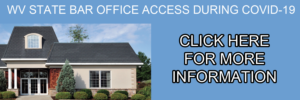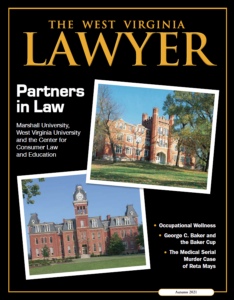|
||||||||||||||||||||||||||||||||
SEARCH
Error: Server configuration issue
Related Links
- American Bar Association
- Legal Aid of West Virginia
- Public Defender Services
- State Bar Young Lawyer Section
- Supreme Court of Appeals of WV
- US Bankruptcy – NDWV
- US Bankruptcy – SDWV
- US Court of Appeals-4th Circuit
- US District Court – NDWV
- US District Court – SDWV
- WV Attorney General
- WV Bar Foundation
- WV Board of Law Examiners
- WV Continuing Legal Education
- WV Judicial & Lawyer Assistance Program
- WV Office of Disciplinary Counsel
- WVU College of Law



















